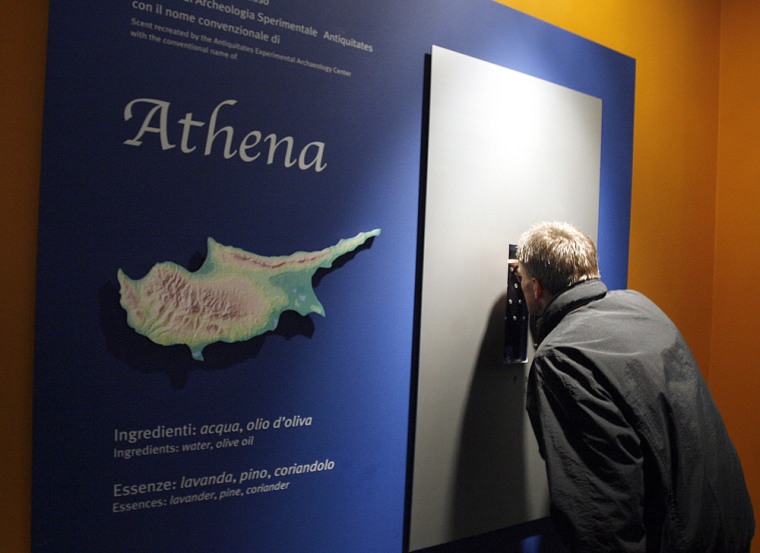It’s a rare chance to smell the scent of ancient history — typically a mix of natural spices and olive oil — thanks to an exhibit in Rome featuring fragrances from the world’s oldest known perfume factory.
On display are four perfumes recreated by a team of archaeologists from 14 original fragrances dating from 4,000 years ago. Digging at the Pyrgos-Mavroraki site in Cyprus, they turned up a complex believed to have been used as a perfume lab.
The archaeologists used fragrances extracted from traces left in containers at the site to recreate ancient aromas with the same techniques used in the past, said Maria Rosaria Belgiorno, the leading archaeologist who discovered the factory in 2003.
“Today, we are used to chemical and alcoholic scents, but these are fresher ones, smelling of herbs and spices, like almond, coriander, myrtle, conifer resin, bergamot — and not flowers,” said Belgiorno, who is also the curator of the exhibit at Rome’s Capitoline Museums.
The perfumes were made through the lengthy steeping of the spices in water and oil and other ancient techniques, she told The Associated Press.
The perfumes — named for the Greek goddesses Hera, Athena, Aphrodite and Artemis — are displayed behind glass, with a lid that visitors can lift up to smell the fragrances. Alongside are 60 items, including amphorae, jugs, grinders and distilling equipment, discovered at the site some 60 miles southwest of Nicosia.
While perfumes and ointments have been found in tombs in Egypt and Mesopotamia, Belgiorno said this was a rare case where an entire factory dedicated to making perfume was found.
The 42,300-square-foot lab, believed to have been destroyed in an earthquake in antiquity, is exceptionally well-preserved, Belgiorno said, and shows that making perfume was a serious business. The 2000 B.C. complex included an olive press room, areas dedicated to the working and refining of copper, and five 106- to 132-gallon oil-storage containers. It employed dozens of people, show organizers said.
Throughout the Bronze Age and into the 1st millennium B.C., Cyprus played a key role in copper and olive oil production and trade. Olive oil was used as a base for medicine, cosmetics and perfume, some of which were exported, mainly to Greece.
“The Perfumes of Aphrodite and the Secret of Oil” exhibit, which opened March 14, runs through Sept. 2.
